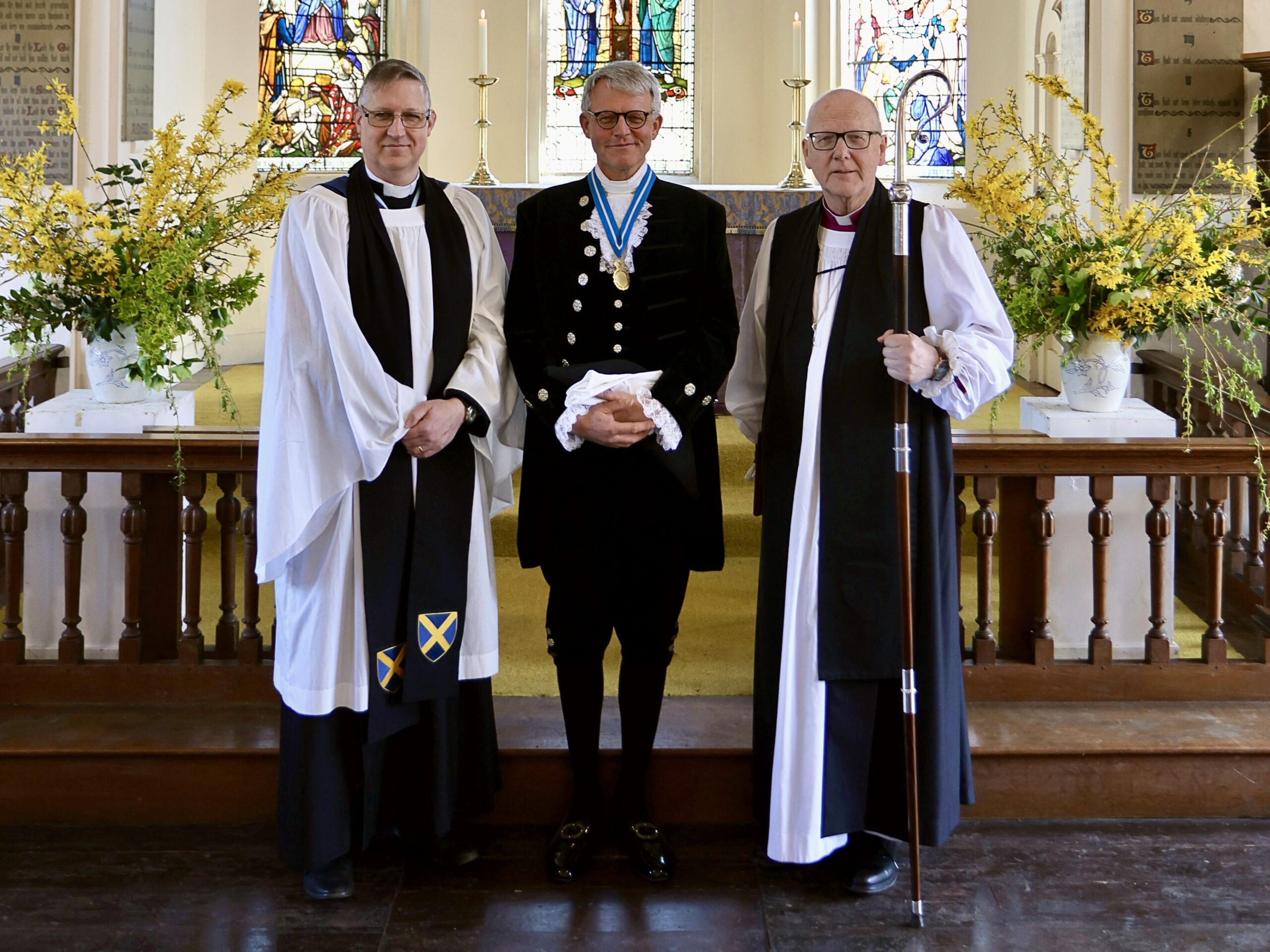Last month I had the great privilege of officiating at a special service at Wareside Church, the likes of which I have never seen before (nor am I likely to see again). It was a short act of worship to frame the ceremony in which the new High Sheriff of Hertfordshire made his “Declaration” and formally assumed his role. I would like to offer my congratulations to Nicholas Buxton on his appointment, and my delight at being asked to be his Chaplain for his year of office. Below, I’ve used some of the material from the order of service to explain what the role is about. To identify what I have not written, I have put this text in italics.
In the year 969, King Edgar is said to have established Hertford as the principal borough of the shire or county that bears its name. He appointed a “Shire Reeve” to act in effect as governor responsible to the King for the maintenance of law and order within the shire, and for the collection and return of taxes due to the Crown. I confess that when I read this for the first time, I was most interested; Edgar was one of the Kings served by Dunstan, who was later made “Saint Dunstan” and whose feast day is 19th May. Dunstan was Archbishop of Canterbury during Edgar’s reign and wrote the rite for his coronation. That rite still forms the basis of the one used at the coronation of British monarchs today.
The duties of the Office [of Sheriff] have evolved over time, but High Sheriffs are still appointed personally by the monarch on the advice of the Privy Council. Supporting the Crown and the judiciary remain central elements of the High Sheriff role. They actively lend support and encouragement to crime prevention agencies, the emergency services and the voluntary sector. The Office is held for one year, at no charge to the public purse. The High Sheriff is still the Returning Officer for parliamentary elections for all 12 constituencies in Hertfordshire and has responsibility for proclaiming the accession of a new Sovereign. Being independent and non-political, the High Sheriff has the opportunity to bring a wide variety of people together within the county. The High Sheriff also supports the many charitable and voluntary organisations that help the most vulnerable in our community.
So, since there’s not a formal liturgy for “The Declaration of the High Sheriff” in the Book of Common Prayer, like Dunstan before me, I had to create one. Accordingly, following the procession of the Under Sheriff, Police Cadets, a High Court Judge, the outgoing and incoming High Sheriffs, myself and the Lord Bishop of St Albans, the declaration ceremony and bespoke prayers were framed between two hymns chosen specially for the occasion. Wendell Berry’s poem, “The Peace of the Wild Things” was read, in keeping with the theme of “Nurture through Nature” which Nicholas seeks to encourage during the year.
It is a privilege to be involved with this important work and to be reminded, as words from Psalm 8 told us in the service, that the God who made our beautiful world is deeply interested in the nitty-gritty of human life. Nicholas will visit many places in the name of the King with the intention of supporting human flourishing. You and I, wonderfully made in the image of God, are called to represent God in all we do – to steward nature and to bless one another.
With or without public declarations of intent, may we all take our responsibility seriously.
